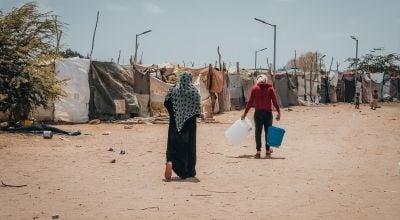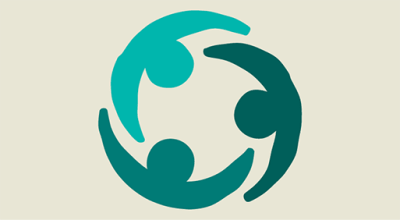
Read our 2023 annual report

Knowledge Hub
Oma was born into war.
In her 18 months of life, she was frequently ill and struggled to grow.
When Oma stopped playing with her sisters, her mother’s worry turned to fear.
In Yemen, nearly ten years of civil war has uprooted communities, decimated public services, and pushed over 80% of the population into poverty.
About half of the population have no access to clean water or health care. Without clean water, for both drinking and washing, children fall ill. Disease is an aggravating factor in acute malnutrition, which now affects over five million children in Yemen.

A timely visitor
When Saadia visited the home of Oma, she found a family struggling in extreme poverty. Saadia is a Community Health Volunteer, trained by Concern to screen for malnutrition in women and children, and inform parents of good hygiene and nutrition practices.
“Oma’s mother knew that her daughter was not growing, and frequently getting sick, but she was not aware of appropriate feeding practices,” says Saadia, “She had never taken Oma to a health facility. I assessed Oma's physical condition and found that she was suffering from severe malnutrition.”
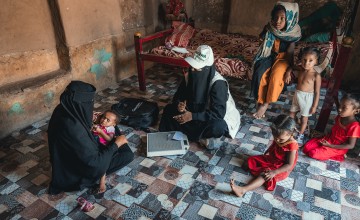
Yemen is in the grip of a cholera epidemic. Concern and Irish Aid are supporting efforts by Yemeni community members to prevent the spread of disease and encourage people to attend health centres.
Gameel is the manager of a health facility supported by Concern; "The malnutrition rates are already very high, and with the cholera outbreak, more people are suffering. Children and women suffer more due to the community's limited knowledge about nutrition and health. They are either not coming to the health facility or are coming very late with complications. This leads to more severe health risks, or even death.”
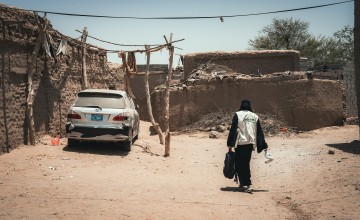
Volunteers, and neighbours
Community Health Volunteers (CHVs), like Saadia, are the backbone of the effort to get women and children treated earlier, and more often. Working in their own communities, using local knowledge and relationships, the volunteers are highly effective.
In just four months of programming, the CHVs supported by Concern (45 in total) screened over 5,000 children and over 400 pregnant and lactating women. They identified 180 children and 104 women as sick or malnourished, and made lifesaving referrals to health facilities - also supported by Concern. The CHVs also provided health and hygiene awareness sessions to over 12,000 people, mitigating against the spread of cholera and other waterborne diseases.


As the other children looked on, Saadia placed a Middle-Upper-Arm-Circumference (MUAC) band around Oma’s arm and pulled it closed. The length of the band was divided into three coloured sections: green, yellow, and red. Once fitted snugly around her little arm, it was clear that Oma was in trouble. The band had stopped at red, indicating severe acute malnutrition. Saadia convinced Oma’s mother to take her to the nearest health facility without delay.
Gameel, the health facility manager, describes the impact of such an intervention: “With a timely detection of malnutrition or cholera, we can treat the person, and prevent death. Any delay will result in complications. CHVs play an important role in our communities, sensitising people to the importance of timely treatment.”
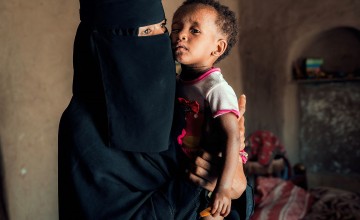
“God will reward me”
Once Oma was admitted to the health facility, treatment began immediately.
Oma was put on a diet of ready-to-use therapeutic food (RUTF): a high-nutrient paste made from powdered milk, peanuts, butter, vegetable oil, sugar, and a mix of vitamins and minerals.
Over time, Oma’s condition began to gradually improve, and her appetite returned. She was discharged from the health facility but continued her treatment as an outpatient.
Nobody was more relieved than her mother: “I am so happy that my daughter is improving. God bless Saadia, she encouraged us to visit the health facility. She also taught us about the importance of breastfeeding, keeping our child and house clean, washing our hands, and using the right food for my children and myself. From now on, I will visit the health facility once I see a danger sign.”

Oma returned to playing with her sisters. Saadia continues to visit the home, watching her grow.
“I feel happy,” she says, “when I see a child who has recovered from sickness or malnutrition because I identified them and referred them to the health facility. I feel proud that many children and women recovered due to my small effort.”
Although the programme has concluded, the volunteers remain, living in their own communities, and supporting their neighbours.
“God will reward me,” says Saadia, “and I will continue to inform my community about health and nutrition.”




